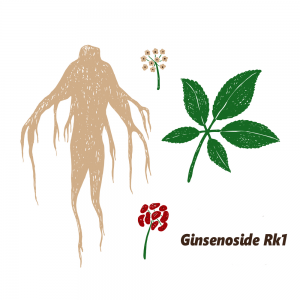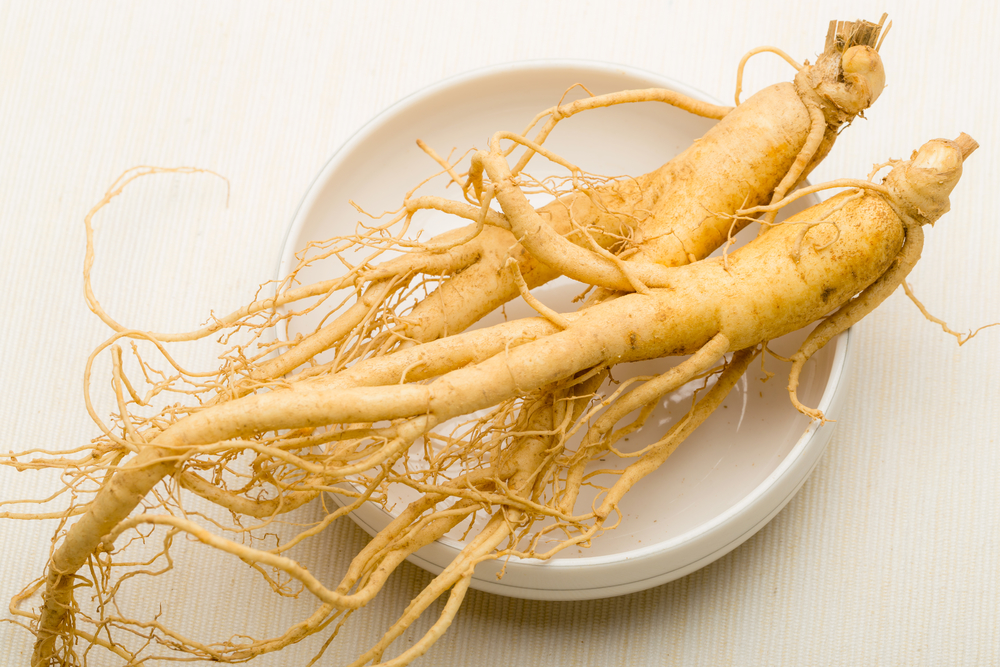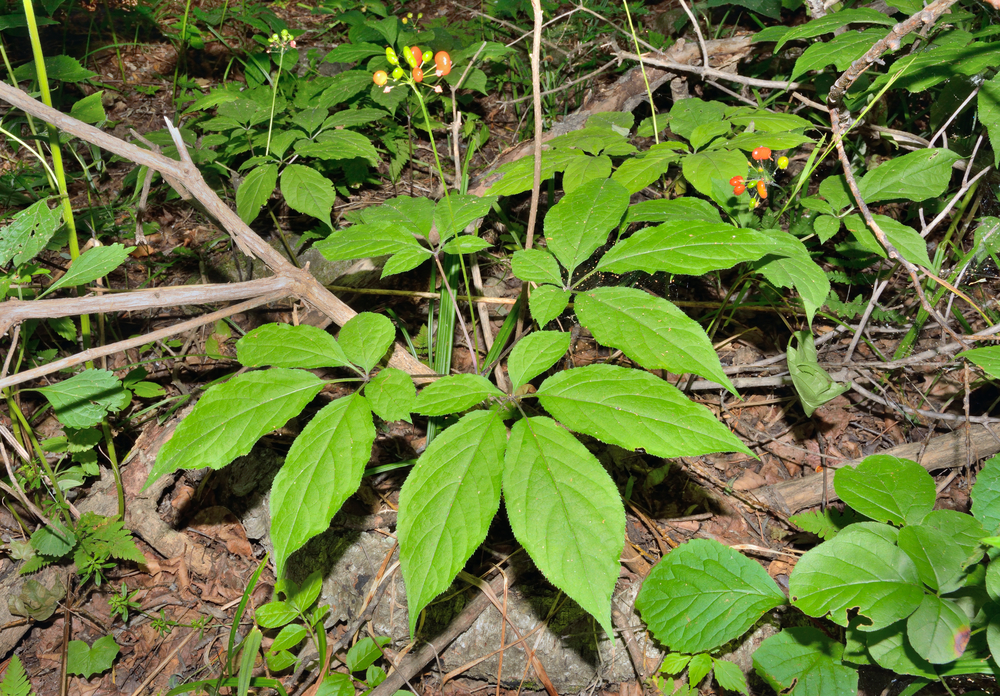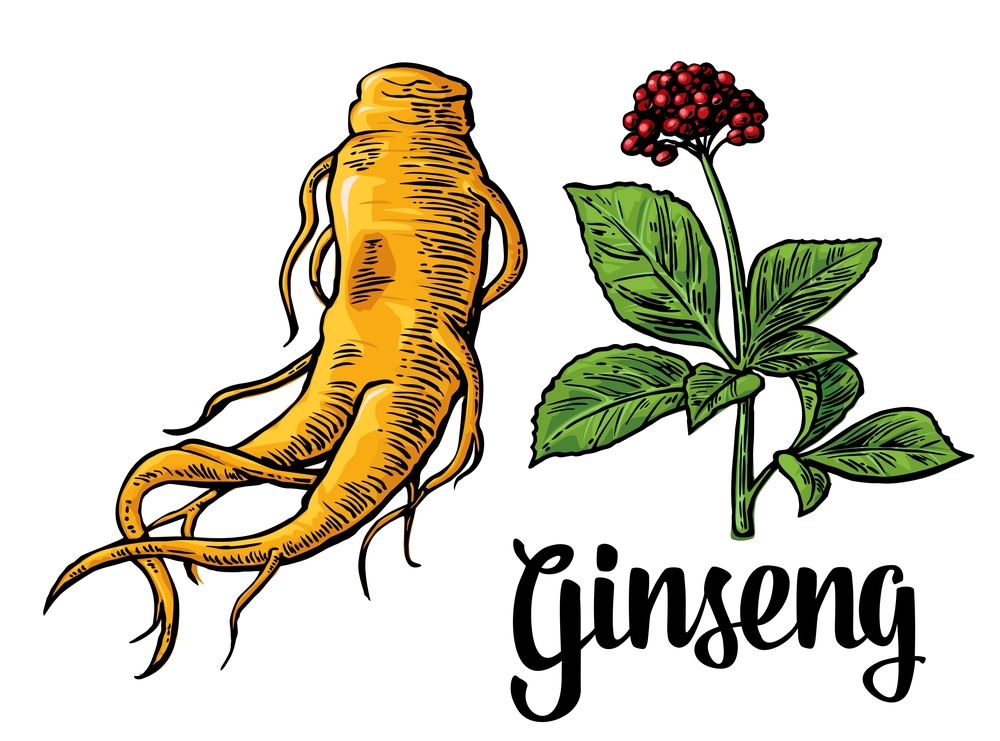13 common questions about ginseng
Ginseng is a popular medicinal herb around the world, and it is titled King of Herbs due to a variety of health benefits. Unlike caffeine that we are quite familiar with, people have many questions on ginseng and ginseng supplements before taking a try. We gather some common questions and have them answered in a detailed manner.

1. American ginseng vs. Korean red ginseng, which is better?
People could not distinguish between American ginseng and Korean red ginseng, the two are the most known by people. In fact, they can’t be equally compared since they belong to different angles of classification.
American ginseng and Panax ginseng belong to the genus Panax. American ginseng is native to eastern North American while Panax ginseng is native to the mountains of East Asia. Nowadays, both can be cultivated in different regions.
Red ginseng is processed ginseng steamed at a high temperature and then dried or sun-dried. The red ginseng after heating processing increases rare ginsenoside content, including rare ginsenosides Rg3 and Rg5.
Korean red ginseng cannot be compared directly with American ginseng. It is ginsenoside content that matters. Korean red ginseng that holds higher amounts of ginsenosides, is sure to be stronger than American white ginseng. However, American ginseng extract that is processed with the heating method also contains favorable ginsenoside amounts.
2. Ginsenosides components of ginseng
Ginseng contains naturally occurring ginsenosides like Rg1, Re, Rb1, Rc, Rb2, Rd in the root. Ginseng is steamed and processed to produce rare ginsenosides, in which the naturally occurring ginsenosides are converted into rare ginsenosides. The steamed Panax ginseng, or called red ginseng, contains rare ginsenosides Rg3, Rh1, Rg5, F4, etc. These rare ginsenosides are more bioactive and stronger and have greater health benefits than naturally occurring ginsenosides.
3. What is the age of the roots used in ginseng supplements?
We cannot know the age of the roots used in ginseng supplements unless it is claimed on the product labels. Instead of caring about the ginseng ages, the ginsenoside content is what customers shall really pay attention to.
Ginsenosides are the pharmacologically active ingredients in ginseng that are responsible for its health benefits. The quality of a ginseng supplement depends on its ginsenoside content.
A majority of ginseng supplements contain 4%-10% total ginsenosides, and a few contain highly bioactive and absorbable rare ginsenosides in high concentration.
4. Will ginseng help increase sexual time?
Ginseng improves sexual functions, indicated by studies. A clinical study was conducted to investigate the safety and efficacy of Korean ginseng berry extract on sexual function in men with erectile dysfunction. Eight weeks of Korean ginseng berry extract (1.4 g per day) turned out to improve erectile functions among 59 men with mild-to-moderate ED.
As for women, some studies also indicate that ginseng consumption shows positive effects on improving sexual function and quality of life and mitigating menopausal symptoms.
5. Will ginseng keep people awake?
Ginseng is known as an energy boost so many people will doubt whether ginseng consumption will cause insomnia. People who are allergic to ginseng can experience nervousness and insomnia, and they shall reduce the dosage or discontinue use it if necessary. The good news is that many studies indicated that ginseng consumption can help improve sleep efficacy and reduce wake time. It is agreeable not to take ginseng before bed.
6. Is ginseng for male or female use?
Both males and females can consume ginseng and ginseng products, and they can provide benefits to both genders.
7. What’s the daily dosage for people?
The dosage of ginseng depends on different preparation and usage. Generally, it is suggested to take 1-2 grams of ginseng per day, not to exceed 9 grams of dried root per day for healthy people. Ginseng extract that processed to contain 4-7% ginsenosides shall be reduced to 400-600 mg per day.
The dosage can be increased if people use ginseng to help improve flu and sexual functions.
8. How long does it take to feel the effects of ginseng?
It depends individually. Some people that have perfect intestinal flora to break down ginsenosides into low-weight molecules will have a quick absorption and thus can feel the effects of ginseng in a day. Ginseng has a cumulative effect, and people tend to feel obvious benefits after 4 weeks.
9. Do ginseng preparations contain caffeine?
Because ginseng is known as an energy booster, some people will question whether ginseng contains caffeine. All ginseng species don’t contain caffeine, and the active ingredients of ginseng are ginsenosides that can be used in Herbal Medicine as an adaptogen to help increase energy and resistance to stress and enhance physical capacity/performance. In addition to energy-boosting, ginsenosides show antioxidant, anti-inflammatory, anti-bacterial activities, which lead to a variety of health benefits of ginseng.
10. Is ginseng processed with alcohol?
May or may not. Most ginseng supplements containing only total ginsenosides are not processed with alcohol. However, some manufacturers that focus on producing rare ginsenosides may use ethanol as an extraction solvent, so you can smell a strong odor of alcohol when taking their rare ginsenosides supplements.
11. Is ginseng easy to swallow?
People with difficulty swallowing have concerned about capsule size. Currently, commercial ginseng supplements are commonly made in ginseng capsules, and seldom in soft gels, tinctures or liquid drops.
People with difficulty swallowing can choose small and easy-to-swallow ginseng capsules and if necessary, ginseng powders in capsules can be solved in warm water for consumption.
12. Why third-party testing is a must?
Quality and safety are vital for anything that is ready for consumption. Ginseng plants are cultivated in different soil and might contain pesticide residues. Third-party testing involves screening of chemical hazards like heavy metals, pesticide residues, and mycotoxin, etc, and ginseng products that pass third-party testing make people assured that they are safe for consumption.
13. Do ginseng supplements need to be kept in the fridge?
Supplements shall be stored in a dry and cool place. Theoretically, ginseng supplements can be stored in the fridge. However, in fact, refrigerators are not an ideal place because their humidity and temperature can change with doors open and shut. Ginseng supplements are suggested to be kept in a dry and cool place and away from heat exposure. Special ginseng preparation shall be stored in the fridge as specified in the product labels.


